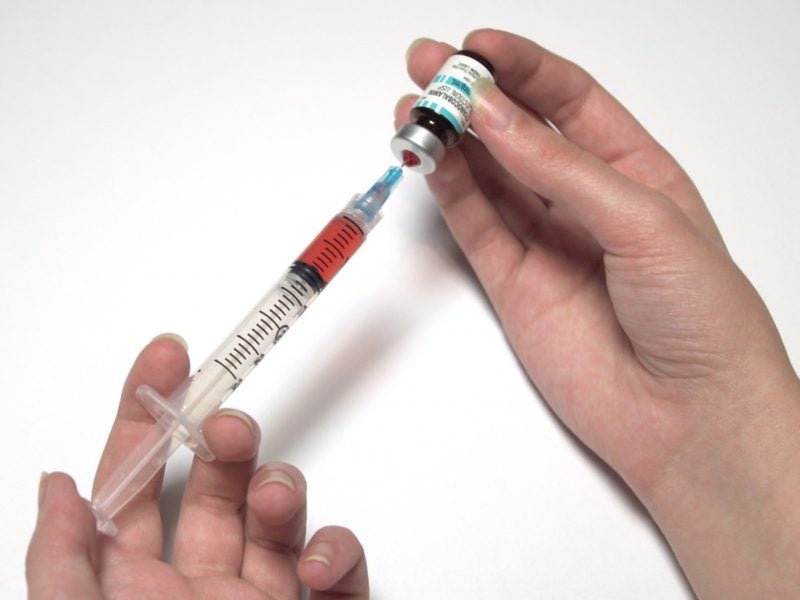
The World Health Organization (WHO) has announced that the Government of Malawi has immunised the first children with RTS,S/AS01 (RTS,S), the world’s first malaria vaccine.
This move is part of a WHO-coordinated three country pilot programme, which will also include Ghana and Kenya, where the risk of malaria is high and there has been previous success with other childhood vaccines. It aims to reach 360,000 children per year across the three countries.

Discover B2B Marketing That Performs
Combine business intelligence and editorial excellence to reach engaged professionals across 36 leading media platforms.
The pilot will allow the WHO and its partners to assess the feasibility of administering the four doses of the vaccine, RTS,S’s full role in reducing childhood deaths and establish the vaccine’s safety profile in a routine use context.
WHO regional director for Africa Dr Matshidiso Moeti said: “We know the power of vaccines to prevent killer diseases and reach children, including those who may not have immediate access to the doctors, nurses and health facilities they need to save them when severe illness comes.
“This is a day to celebrate as we begin to learn more about what this tool can do to change the trajectory of malaria through childhood vaccination.”
RTS,S has been in development since the 1980s by researchers at pharmaceutical company GlaxoSmithKline (GSK). In 2001, GSK partnered with healthcare non-profit organisation PATH to focus the development of RTS,S for use in children; this was supported by the Bill and Melinda Gates Foundation.

US Tariffs are shifting - will you react or anticipate?
Don’t let policy changes catch you off guard. Stay proactive with real-time data and expert analysis.
By GlobalDataA Phase III study of 15,500 infants in seven African countries conducted between 2009 and 2014 demonstrated that children receiving four doses of RTS,S experienced significant reductions in malaria and malaria-related complications. This made it the first vaccine to provide partial protection against malaria for young children.
According to the WHO, during the trial, RTS,S prevented four in ten cases of clinical malaria, three in ten cases of severe malaria and six in ten cases of severe malaria anaemia, which is the most common cause of death for children with malaria.
As a result of this promising data, the European Medicines Agency issued a positive scientific opinion of the vaccine in July 2015. This means that the vaccine meets the standards for medical products approved in the European Union.
GSK will donate up to ten million vaccine doses for the pilot programme. Its vaccines division chief medical officer Dr Thomas Breuer said: “Delivering the world’s first malaria vaccine will help reduce the burden of one of the most pressing health challenges globally.
“This novel tool is the result of GSK employees collaborating with their partners, applying the latest in vaccine science to contribute to the fight against malaria. We look forward to seeing the results of the pilot.”
During the pilot, PATH will carry out a quantitative study on healthcare utilisation to try to understand why people use or do not use the vaccine, assess the economics of vaccine immunisation and to get a more complete sense of the cost of widespread use of the vaccine.
Its CEO and president Steve Davis said: “We salute WHO and Malawi for their leadership in realizing this historic milestone and we look forward to the start of vaccination in Ghana, and then Kenya later this year.
“A vaccine for malaria is among many innovations needed to bring an end to this disease, and we proudly stand with all countries and our many partners in progressing towards a malaria-free world.”




